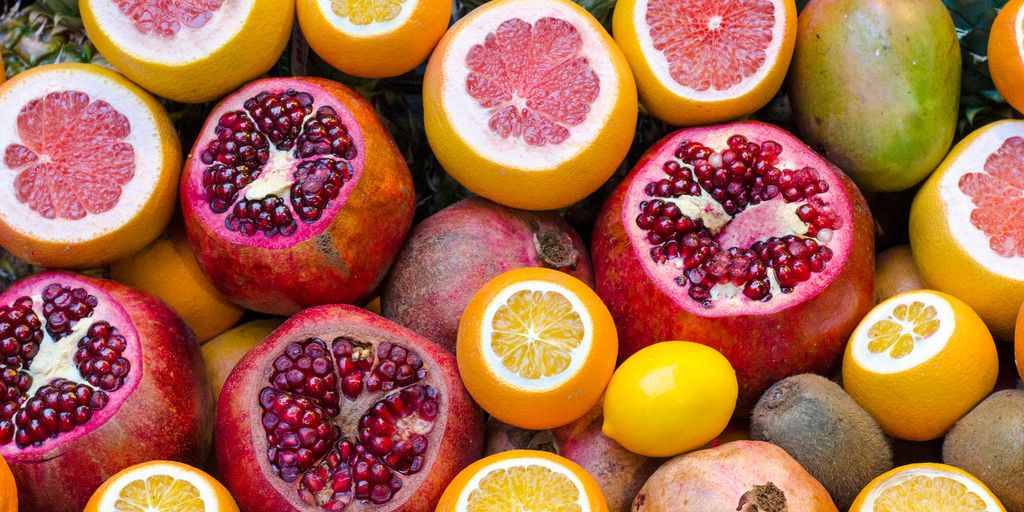
In today’s world, where fad diets and quick fixes are everywhere, finding balanced nutrition can seem tough. But, it’s the key to feeling more energetic, maintaining a healthy weight, and improving your overall well-being. By understanding the basics of nutrition, like the roles of proteins, fats, carbohydrates, vitamins, and minerals, you can give your body the fuel it needs. Simple daily choices, like eating a variety of foods, controlling portions, and choosing whole foods over processed ones, can make a big difference in your health.
Key Takeaways
- Balanced nutrition is essential for energy, healthy weight, and overall well-being.
- Macronutrients and micronutrients play important roles in keeping our bodies healthy.
- Whole foods are better than processed foods because they have more nutrients and fewer additives.
- Reading nutrition labels, cooking at home, and staying hydrated are simple ways to improve your diet.
- Different life stages require different nutritional needs, from children to the elderly.
Understanding the Fundamentals of Balanced Nutrition
In a world filled with fad diets, understanding the fundamentals of balanced nutrition is key to thriving. Balanced nutrition provides your body with all the essential nutrients it needs to function properly. This section will explore the roles of macronutrients, micronutrients, fiber, vitamins, and minerals, helping you build a strong dietary foundation.
The Role of Macronutrients
Macronutrients include proteins, fats, and carbohydrates. Each plays a vital role in your body:
- Proteins help build and repair tissues.
- Fats provide energy and support cell growth.
- Carbohydrates are the body’s main energy source.
The Importance of Micronutrients
Micronutrients, such as vitamins and minerals, are crucial for various bodily functions. They help in processes like bone health, immune function, and wound healing. Even though they are needed in smaller amounts, their impact is significant.
Fiber: The Unsung Hero
Fiber is often overlooked but is essential for a healthy diet. It aids in digestion, helps maintain stable blood sugar levels, and keeps you feeling full longer. Including fiber-rich foods like fruits, vegetables, and whole grains can make a big difference in your overall health.
Vitamins and Minerals for Optimal Health
Vitamins and minerals are the building blocks of a healthy body. They support everything from bone health to immune function. For example, Vitamin C is crucial for skin health, while calcium is essential for strong bones.
Understanding these fundamentals can transform your health, making balanced nutrition not just a goal but a way of life.
Healthy Foods: The Key to a Balanced Diet and Unparalleled Health Benefits
Unlock the secrets to a healthier lifestyle with our comprehensive guide on foods. Discover the health benefits of a balanced diet, explore calcium-rich foods, and learn how to maintain a healthy diet. Dive into the world of nutrition and empower your wellness journey today.
Practical Tips for Achieving Balanced Nutrition in Daily Life
Reading Nutrition Labels
Turn grocery shopping into an educational treasure hunt. Scan nutrition labels for hidden sugars, unhealthy fats, and sodium. If a product has a long list of ingredients, especially those that sound like they belong in a lab rather than a kitchen, think twice before tossing it into your cart. Aim for products with five or fewer ingredients — that’s often a sign they’re closer to their natural state.
Cooking at Home
Home-cooked meals are magic. They give you complete control over what goes into your food. Simple recipes using whole ingredients can get you started. Think roasted vegetables, grilled chicken, salads, and hearty soups. These dishes not only nourish your body but also make your taste buds dance with joy.
Hydration: The Importance of Water
Your new BFF: Water. It supports digestion, helps transport nutrients, and keeps your skin glowing. Ditch sugary drinks and sodas, and if you need a bit of flavor, infuse your water with slices of lemon, cucumber, or berries.
Embrace these tips, and you’ll soon find that healthy eating isn’t a chore — it’s a delightful journey. Happy eating!
Creating a Balanced Meal Plan: Portion Control and Dietary Diversity
Mastering Portion Control
Portion control is key to avoiding overeating and ensuring you get the nutrients your body needs without the extra calories. Imagine your plate as a colorful artist’s palette:
- Half your plate: Fill it with a variety of vegetables and fruits. The more colors, the better. Think of this as your canvas—bright and vibrant, full of nutrients, with minimal calories.
- A quarter of your plate: This is where lean proteins take the stage. Chicken, turkey, fish, beans, and legumes are excellent choices. Protein helps build and repair tissues, making it crucial for your body’s maintenance.
- The remaining quarter: Here, whole grains like brown rice, quinoa, and whole wheat pasta provide fiber and essential nutrients. They help maintain your energy levels throughout the day.
Remember the tip: Don’t let your eyes be bigger than your stomach. Use smaller plates to trick your brain into thinking you’re eating more.
Incorporating Dietary Diversity
Ever heard the saying, “Variety is the spice of life?” Well, it’s true for your diet too. Eating a broad range of foods ensures you get a full spectrum of nutrients, each playing its part in the orchestra of your health. To jazz up your diet:
- Try new fruits and vegetables each week.
- Mix different types of proteins, like fish, beans, and nuts.
- Experiment with whole grains you haven’t tried before, such as quinoa or barley.
A healthy eating pattern is about smart choices. The American Heart Association suggests these daily amounts.
Tips for Balanced Meal Planning
Creating a balanced meal plan doesn’t have to be complicated. Here are some tips to get you started:
- Plan your meals ahead of time to avoid last-minute unhealthy choices.
- Include a variety of food groups in each meal to ensure you’re getting a range of nutrients.
- Keep healthy snacks on hand, like nuts, fruits, and yogurt, to curb hunger between meals.
- Follow a structured plan like a 1500-calorie meal plan to set you on the path to healthy weight loss—without feeling deprived.
By focusing on portion control and dietary diversity, you can create a balanced meal plan that supports your health and well-being. Happy eating!
Nutrition and Health Across Different Life Stages
For Children: Fueling Growth and Development
As children grow, their nutritional needs evolve. It’s essential to balance macronutrients like carbohydrates, proteins, and fats, along with a spectrum of vitamins and minerals. Incorporating colorful fruits and vegetables, whole grains, lean proteins, and healthy fats into their diet ensures they get the nutrients needed for optimal growth and cognitive development. Avoiding excessive sugar and processed foods helps build a strong foundation for a healthy lifestyle.
For Teens: Navigating Adolescence with Nutritional Wisdom
Teenagers often face peer pressure and busy schedules, making it challenging to maintain a balanced diet. Emphasizing the importance of whole foods, hydration, and regular meals is crucial. Encourage them to be active participants in their food choices, experimenting with different recipes and finding joy in cooking nutritious meals. Educating teens about the impact of nutrition on energy levels, mood, and overall well-being empowers them to make informed decisions.
For Adults: Balancing Act for a Productive Life
Adults juggle career, family, and personal responsibilities, making it easy to neglect their nutritional needs. Planning meals in advance, incorporating a variety of food groups, and paying attention to portion sizes are key. Choose whole foods over processed options, stay hydrated, and limit added sugars and salt. For men and women, certain nutritional requirements may vary. Women, for instance, may need more iron during menstruation, while men may focus on maintaining prostate health through foods rich in antioxidants and healthy fats.
For the Elderly: Nourishing the Golden Years
As we age, our nutritional needs change, and maintaining muscle mass and bone density becomes crucial. Adequate protein, calcium, and vitamin D are essential for bone health, while fiber-rich foods help with digestion. Hydration is also critical, as aging may reduce the sensation of thirst. Incorporating nutrient-dense foods and, if necessary, considering supplements in consultation with a healthcare professional, ensures the elderly receive the vital nutrients for a healthy and active lifestyle.
Unlocking the Power of Foods for Optimal Health

The Impact of Nutrition on Chronic Diseases
A balanced diet can significantly reduce the risk of chronic diseases. Eating nutrient-dense foods helps maintain a healthy weight, lowers blood pressure, and improves heart health. By choosing whole foods over processed ones, you provide your body with the essential nutrients it needs to function properly.
Foods that Boost Immunity
Certain foods are known to enhance the immune system. Citrus fruits, garlic, and ginger are excellent choices. These foods are rich in vitamins and antioxidants that help fight off infections and keep you healthy. Including a variety of these foods in your diet can make a big difference in your overall wellness.
The Role of Antioxidants in Health
Antioxidants play a crucial role in protecting your body from damage caused by free radicals. Foods like berries, nuts, and dark chocolate are high in antioxidants. Incorporating these into your diet can help reduce inflammation and lower the risk of chronic diseases.
By understanding the power of foods, you can unlock a pathway to better living. Dive into the realm of healthy eating and discover how a nutritious diet can boost your overall wellness and enhance happiness.
Conclusion
In the journey towards balanced nutrition and better health, remember that it’s all about making small, mindful choices every day. You don’t need to be perfect; just aim for progress. By understanding the basics of nutrition and incorporating a variety of whole foods into your meals, you can fuel your body with the right nutrients. Keep in mind that hydration is also key, so drink plenty of water. With these simple steps, you’ll be well on your way to a healthier, more energetic life. Enjoy the process and celebrate each positive change you make!
Frequently Asked Questions
What are macronutrients and why are they important?
Macronutrients are nutrients that our bodies need in large amounts to function properly. They include proteins, fats, and carbohydrates. Proteins help build and repair tissues, fats provide energy and support cell growth, and carbohydrates are the body’s main source of energy.
Why are micronutrients essential for health?
Micronutrients, which include vitamins and minerals, are essential for good health because they support various bodily functions. For example, vitamin C helps with skin health and immune function, while calcium is important for strong bones and teeth.
What is the role of fiber in a balanced diet?
Fiber is crucial for a healthy digestive system. It helps regulate the body’s use of sugars, keeping hunger and blood sugar in check. Fiber-rich foods include fruits, vegetables, whole grains, and legumes.
How can I read nutrition labels effectively?
To read nutrition labels effectively, look at the serving size first. Then, check the calories, and the amounts of nutrients like fats, sodium, and sugars. Aim for products with fewer ingredients and avoid those with added sugars and unhealthy fats.
What are some tips for cooking healthier meals at home?
Cooking at home allows you to control what goes into your food. Use whole ingredients like fresh vegetables, lean proteins, and whole grains. Avoid processed foods and try to bake, grill, or steam instead of frying. Experiment with herbs and spices for flavor instead of relying on salt.
Why is hydration important and how much water should I drink?
Hydration is important because water helps with digestion, nutrient transport, and temperature regulation. Aim to drink at least 8 cups (64 ounces) of water a day. You can also hydrate with fruits and vegetables that have high water content, like cucumbers and watermelon.






